
Herman Melville was an American novelist, short story writer, and poet of the American Renaissance period. Among his best-known works are Moby-Dick (1851); Typee (1846), a romanticized account of his experiences in Polynesia; and Billy Budd, Sailor, a posthumously published novella. At the time of his death, Melville was no longer well known to the public, but the 1919 centennial of his birth was the starting point of a Melville revival. Moby-Dick eventually would be considered one of the great American novels.
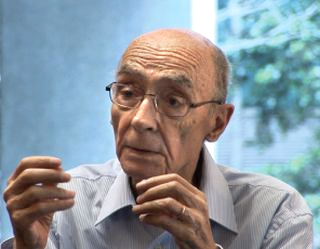
José de Sousa Saramago was a Portuguese writer. He was the recipient of the 1998 Nobel Prize in Literature for his "parables sustained by imagination, compassion and irony [with which he] continually enables us once again to apprehend an elusory reality." His works, some of which can be seen as allegories, commonly present subversive perspectives on historic events, emphasizing the theopoetic human factor. In 2003 Harold Bloom described Saramago as "the most gifted novelist alive in the world today" and in 2010 said he considers Saramago to be "a permanent part of the Western canon", while James Wood praises "the distinctive tone to his fiction because he narrates his novels as if he were someone both wise and ignorant."
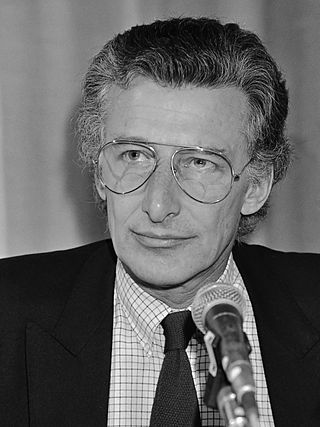
Harry Kurt Victor Mulisch was a Dutch writer. He wrote more than 80 novels, plays, essays, poems, and philosophical reflections. Mulisch's works have been translated into 38 languages so far.

Willem Frederik Hermans was a Dutch author of poetry, novels, short stories, plays, as well as book-length studies, essays, and literary criticism. His most famous works are The House of Refuge, The Darkroom of Damocles, and Beyond Sleep.

Anton Adriaan Mussert was a Dutch politician who co-founded the National Socialist Movement in the Netherlands (NSB) in 1931 and served as its leader until the party was banned in 1945. As such, he was the most prominent Dutch fascist before and during World War II. Mussert collaborated with the German occupation government, but was granted little actual power and held the nominal title of Leider van het Nederlandsche Volk from 1942 onwards. In May 1945, as the war came to an end in Europe, Mussert was captured and arrested by Allied forces. He was charged and convicted of treason, and was executed in 1946.

Louis Marie-Anne Couperus was a Dutch novelist and poet. His oeuvre contains a wide variety of genres: lyric poetry, psychological and historical novels, novellas, short stories, fairy tales, feuilletons and sketches. Couperus is considered to be one of the foremost figures in Dutch literature. In 1923, he was awarded the Tollensprijs.
Dutch language literature comprises all writings of literary merit written through the ages in the Dutch language, a language which currently has around 23 million native speakers. Dutch-language literature is the product of the Netherlands, Belgium, Suriname, the Netherlands Antilles and of formerly Dutch-speaking regions, such as French Flanders, South Africa, and Indonesia. The Dutch East Indies, as Indonesia was called under Dutch colonization, spawned a separate subsection in Dutch-language literature. Conversely, Dutch-language literature sometimes was and is produced by people originally from abroad who came to live in Dutch-speaking regions, such as Anne Frank and Kader Abdolah. In its earliest stages, Dutch-language literature is defined as those pieces of literary merit written in one of the Dutch dialects of the Low Countries. Before the 17th century, there was no unified standard language; the dialects that are considered Dutch evolved from Old Frankish. A separate Afrikaans literature started to emerge during the 19th century, and it shares the same literary roots as contemporary Dutch, as Afrikaans evolved from 17th-century Dutch. The term Dutch literature may either indicate in a narrow sense literature from the Netherlands, or alternatively Dutch-language literature.

Willard is a 2003 American psychological horror film written and directed by Glen Morgan and starring Crispin Glover, R. Lee Ermey and Laura Elena Harring. It is loosely based on the novel Ratman's Notebooks by Stephen Gilbert, as well as on the novel's first film adaptation, Willard (1971), and its sequel, Ben (1972). It was not billed as a remake by the producers, who chose instead to present it as a reworking of the themes from the original with a stronger focus on suspense.

The Gift is Vladimir Nabokov's final Russian novel, and is considered to be his farewell to the world he was leaving behind. Nabokov wrote it between 1935 and 1937 while living in Berlin, and it was published in serial form under his pen name, Vladimir Sirin.

Cees Nooteboom is a Dutch novelist, poet and journalist. After the attention received by his novel Rituelen, which received the Pegasus Prize, it was the first of his novels to be translated into an English edition, published in 1983 by Louisiana State University Press of the United States. LSU Press published his first two novels in English in the following years, as well as other works through 1990. Harcourt and Grove Press have since published some of his works in English.

Enemies, A Love Story is a novel by Isaac Bashevis Singer first published serially in the Jewish Daily Forward on February 11, 1966. The English translation was published in 1972.

Herman Louis Cesar Teirlinck was a Belgian writer. He was the fifth child and only son of Isidoor Teirlinck and Oda van Nieuwenhove, who were both teachers in Brussels. As a child, he had frail health and spent much of his time at the countryside in Zegelsem, with his paternal grandparents. He was nominated for the Nobel Prize in Literature six times.

Charlotte Jacoba Maria Mutsaers is a Dutch painter, prose writer and essayist. She won the Constantijn Huygens Prize (2000) and the P. C. Hooft Award (2010) for her literary oeuvre.
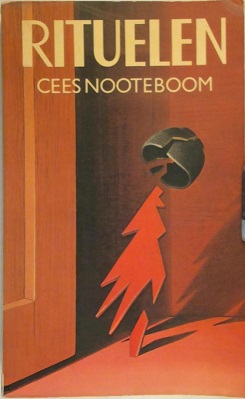
Rituals is a 1980 novel by Dutch writer Cees Nooteboom.
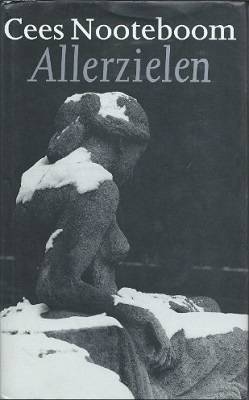
All Souls' Day is a 1998 novel by the Dutch writer Cees Nooteboom. It tells the story of a Dutch documentary filmmaker who lives in Berlin, and reflects, with his friends, on matters such as art, history, and national characters.

Herman Koch is a Dutch writer and actor. He has written short stories, novels, and columns. His best-selling novel The Dinner (2009) has been translated into 21 languages. He has acted for radio, television, and film. He co-created the long-running TV series Jiskefet (1990–2005).
David Colmer is an Australian writer and translator, mainly of Dutch-language literature. He translates novels, poetry and children’s literature and is the current English translator of Gerbrand Bakker, Dimitri Verhulst, Annie M.G. Schmidt, and Nachoem M. Wijnberg. Colmer's poetry translations include selections of the work of Hugo Claus, Anna Enquist, Cees Nooteboom, Ramsey Nasr and Paul van Ostaijen.
Ina Rilke is a Mozambique-born translator who specializes in translating Dutch literature and French literature into English.
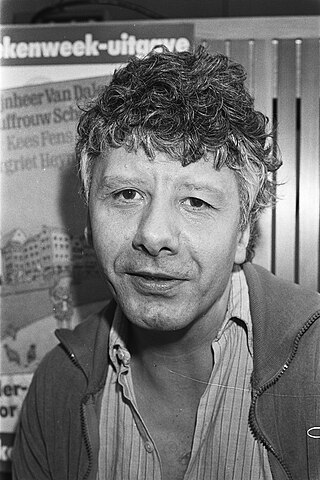
Anton Quintana, pseudonym of Anton Adolf Kuyten, was a Dutch writer.
Death-Watch, first published in April 1935, is a detective story by American writer John Dickson Carr, featuring his series detective Gideon Fell. It is a mystery novel of the whodunnit type.
















